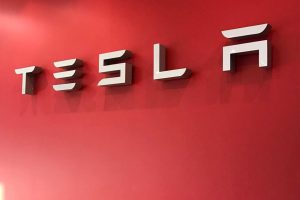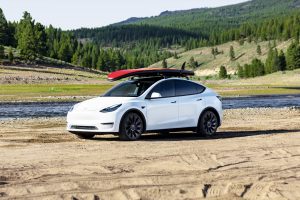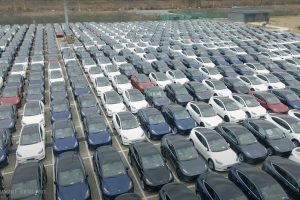It is almost common to see a carmaker announce hundreds of EVs coming in the coming years in the automotive segment’s ongoing move to electric cars. But while such announcements are perfect for headlines, when it comes to their EV strategy, it seems like the time is close for legacy cars to move to the “Tesla Approach”. Carmakers can do this by focusing on quality of their vehicles over quantity.
Quantity Does Not Necessarily Mean Quantity
Just recently, Hyundai, the South Korean automaker, revealed that by 2025 it would have 23 global electric vehicles. This announcement is impressive, and it echoes the same theme as the proposal of the American car manufacturer General Motors, which calls for 30 EVs by 2025. The same approach seems to be taken also by luxury carmakers such as BMW and Daimler, with the former promising nine EVs by 2025 and the latter working on six electric vehicles today.
However, since these announcements deserve a lot of praise, it is important to remember that not all the EVs coming from legacy cars would necessarily be at the same as Tesla. For instance take today’s best-selling electric car from GM, the Wuling Hongguang Mini EV, which is sold in China. This year the vehicle outsold the domestically manufactured Model 3 in China many times, but it is important to highlight that the Mini EV is an electric bare-bones car that doesn’t even have airbags installed.
The Tesla Approach
Tesla’s approach to its electric cars is not unlike what Apple is adopting as a tech giant. That is, only a few products are released by the company, but each in its respective segment is highly competitive. This could be seen in Tesla’s S3XY lineup, all of which could be represented in their own right as luxury electric vehicles. Critics could point out that the build quality and interior materials of Tesla’s electric cars are not yet at the level of veterans like Mercedes-Benz, but in terms of technology, performance, and features, there is no question that the Model S, Model 3, Model X, and Model Y are a cut above.
Tesla also focuses extensively on software and vertical integration, apart from launching only a few successful electric cars. Tesla vehicles are not the only ones that can offer over-the-air updates, but they are arguably the most frequently received by them. The vertical integration that Tesla applies to its operations is pretty awesome as well, with the company now working to produce its own batteries and hardware.
One Good Electric Car
The fact that the EV market is growing is what seems to be overlooked by some legacy car manufacturers today, and as it expands, it probably won’t need thousands of EVs to be sold to customers. This is particularly true if some of these electric cars are at best, substandard or underwhelming. Instead, focusing on making just a few electric cars could be a better option for experienced carmakers, with each being good enough to stand against pioneers such as the Model S, or upstarts such as the Lucid Air and the Rivian R1T. After all, even one good electric car would be better than hundreds of uninspired EVs.
Fortunately, this idea seems to be finding its way to some carmakers. Porsche does not seem to be in a hurry to release a bunch of EVs, with the company focusing on the Taycan, the Taycan Cross Turismo, and the Macan EV. Ford seems to be concentrating on the Mach-E and the F-150 Electric right now. So far the electric vehicle community has received these vehicles very well with the Taycan and the Mach-E even receiving a personal welcome from Tesla CEO Elon Musk.
Want to buy a Tesla Model 3, Model Y, Model S, or Model X? Feel free to use my referral code to get some free Supercharging miles with your purchase: http://ts.la/guanyu3423
You can also get a $100 discount on Tesla Solar with that code. Let’s help accelerate the advent of a sustainable future.





